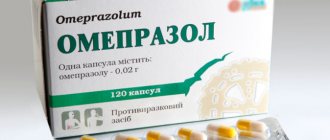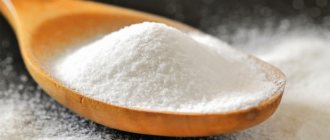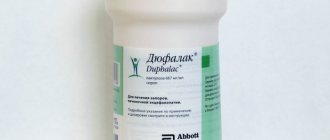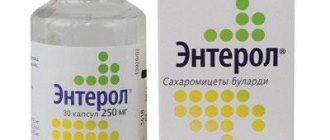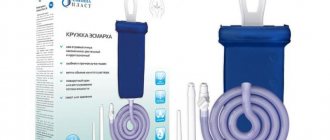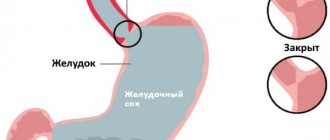More recently, in the 20th century, the Nobel Prize was awarded for the discovery of H2-histamine receptor blockers and their role in medicine. Today these substances are a little forgotten, but until recently they were considered the basis for the treatment of diseases of the digestive system. They have been used for a long time for many gastrointestinal diseases, including Ranitidine for heartburn. Just some 30 years ago, not a single complex treatment of ulcers could be done without it.
What happened to the drug, is it prescribed today? Is it worth starting treatment for them and what is the best approach to such therapy?
Features of the action of "Ranitidine" and its therapeutic effects
As already noted, the medicine belongs to the group of H2-histamine receptor blockers. "Ranitidine" is a drug of this line, second generation. It exists in the form of tablets of 150 and 300 mg (OTC release - 75 mg). In hospitals, they often use 1 ml solutions containing 25 and 50 mg of the active substance. The latter fact is a significant advantage in medicine, as it allows the medicine to be used by people with stomach diseases, who are, for example, in intensive care or those who cannot take tablet medications.
How does Ranitidine work?
- First of all, it reduces the production of gastric juice.
- Reduces the amount of hydrochloric acid produced.
- Its action is also aimed at limiting the activity of pepsin (a protein enzyme produced by the gastric mucosa), which in excess can lead to disruption of the gastrointestinal tract.
For therapeutic purposes, the drug is prescribed in a dose of 300 mg 2 times a day in the morning and evening, the course duration is 4-6 weeks. To prevent exacerbations, a dose of 150 mg is used in the autumn and spring periods.
Indications for use of Ranitidine
In what cases can this drug be used? Does Ranitidine help with heartburn? Yes it helps, but not directly! This medicine is intended primarily to treat diseases of which heartburn is a symptom. That is, “Ranitidine” removes the burning sensation, but thanks to getting rid of diseases of the gastrointestinal tract.
The following indications for its use are distinguished.
- For dyspepsia, which is characterized by pain in the stomach after eating, a burning sensation, and nausea.
- Peptic ulcer of the duodenum and stomach.
- The injection form is used for bleeding in the upper gastrointestinal tract.
- GERD or gastroesophageal reflux disease, in which the stomach contents back up into the esophagus. The main symptom of this condition is heartburn after eating.
- The appearance of a burning sensation after using anti-inflammatory drugs.
- Ranitidine tablets are prescribed for heartburn for people with cancer undergoing an intensive course of chemotherapy.
- Exacerbation of the inflammatory process in the pancreas.
- Intolerance to proton pump blockers in the treatment of diseases of the digestive system.
Contraindications
Contraindications are practically no different from those when using other substances used for heartburn.
- The drug is not prescribed to pregnant and breastfeeding women.
- It should be used with caution in case of hypersensitivity to the entire group of blockers.
- Children under 12 years of age are prohibited from using.
- The substance is prescribed only under the supervision of doctors and with great caution in the presence of kidney and liver damage.
Side effect
Side effects from the use of Ranitidine are most often associated with its overdose, uncontrolled use and individual intolerance.
- Decreased appetite, nausea, vomiting, constipation, or diarrhea may occur.
- Some people, with long-term use, have noticed tinnitus, headaches, dry mouth and severe fatigue.
- Ranitidine helps well against heartburn, but with frequent use pain in muscles and joints appears.
- Rarely do men experience potency problems.
- There are disturbances in the functioning of the heart, a decrease in blood pressure, and a decrease in pulse.
- A decrease in the number of leukocytes and platelets may be observed in the blood.
- Allergic reactions sometimes include urticaria, bronchospasm or Quincke's edema.
Ranitidine – 34 reviews, instructions for use
Ranitidine has a wide spectrum of action. First of all, it has the following therapeutic effect:
- regulates the amount of digestive juice produced by the stomach, which significantly reduces the likelihood of increased acidity;
- reduces the concentration of hydrochloric acid in the stomach cavity;
- significantly reduces the level of pepsin production.
Dosage
The drug should be prescribed exclusively by the attending physician. He also chooses the appropriate form of this drug and its dosage. A specialist must also monitor its use, which cannot be said about independent use.
Release form
Ranitidine is available in both tablet and solution forms. This explains its versatility, since this medicine can be used either orally or in people who, for some physiological reason, cannot absorb drugs in solid form.
Medical indications for use
Ranitidine is considered a drug that helps get rid of heartburn. Indeed, this remedy relieves the unpleasant symptoms of this disease. However, the nature of heartburn is more complex. As a rule, it occurs due to the return of stomach contents, including gastric juices, to the lower parts of the esophagus.
The reason for this may be increased stomach acidity, as well as the presence of other chronic diseases of the digestive tract, such as gastritis, ulcers and others.
The mechanism of action of this drug is that it is precisely due to its direct effect on gastric secretion that it can be used to eliminate the burning sensation.
Complex therapy
Most often, Ranitidine is prescribed in combination with other medications, as a result of which its effectiveness increases and this helps to cope with the disease much faster and practically eliminate the likelihood of relapses. This is due to its wide spectrum of action. Moreover, thanks to the convenient liquid form in which this drug is produced, it can be used as an additional adjuvant even in the presence of complications.
What diseases does Ranitidine treat?
This drug helps with diseases of the gastrointestinal tract such as:
- dyspepsia of all forms and varieties;
- gastritis;
- peptic ulcers of both the stomach and nearby organs;
- hemorrhages in the digestive tract, especially in its upper parts;
- gastroesophageal disease, in which the stomach contracts and the contents return to the lower esophagus;
- irritation of the mucous membrane of the digestive tract due to the use of aggressive medications or substances;
- for burns from chemotherapy;
- acute colitis, enterocolitis and other inflammatory diseases, including those of a chronic nature.
Pharmacodynamics and pharmacokinetics
The active substance ranitidine is absorbed quite quickly from the lumen of the digestive tract. Food has no effect on the degree of absorption. Bioavailability reaches 50%.
Peak concentrations are recorded within 2-3 hours after oral administration. 15% bound to plasma proteins.
Partial metabolism takes place in the hepatic system with the formation of ranitidine S-oxide and desmethylranitidine .
The drug is characterized by a “first pass” effect through the hepatic system. The condition of the liver affects the extent and rate of elimination. After oral administration, the half-life is 2.5 hours, and with a creatinine clearance of 20-30 ml/min, this figure increases to 8-9 hours.
A small amount is excreted in the feces, the main part is excreted unchanged through the renal system. The active component does not pass the blood-brain barrier well, but penetrates the placenta well. Ranitidine is released during lactation.
Side effects
You should be especially careful when self-prescribing this medication. Unfortunately, patients do not always correctly calculate the dosage of this drug or take it without any reason.
That is why before taking Ranitidine you should consult with your doctor.
Moreover, this remedy can only be used for a certain time, after which the drug is replaced with analogues or discontinued, otherwise it will cause a reaction in the body.
Symptoms of side effects
Despite the harmless pharmacology and the almost completely studied mechanism of influence on the patient’s body, the effect of this drug can significantly affect well-being.
Side effects may include the following symptoms:
- loss of appetite, nausea, vomiting, as well as other digestive disorders;
- changes in the quality of stool in different directions - both strengthening and weakening;
- increased pressure, as well as ringing, noise or other extraneous sounds in the ears;
- severe periodic headaches;
- weakness, significant decline in performance;
- the occurrence of pain in muscles and joints;
- tachycardia, drop in pressure, pain and other disturbances in the activity of the heart;
- sometimes – problems with potency;
- decrease in the level of leukocytes, platelets;
- allergic reactions such as swelling, urticaria and other manifestations are possible;
- development of hepatitis, kidney and liver failure;
- Even death cannot be ruled out.
Compatibility with other drugs
Like any other medicine, Ranitidine tends to react directly with other drugs.
In order to adjust the strength of this blocker, its use should take into account its compatibility with other agents. It should be noted that this is a fairly impressive list of medications with a wide variety of effects.
That is why, in order to avoid causing irreparable harm to health, the use of Ranitidine should be discussed with your doctor in advance.
Effect on certain groups of drugs
Ranitidine significantly weakens the effect of antifungal drugs. This fact must be taken into account when drawing up a treatment plan for this remedy.
Conversely, there are drugs that weaken the effect of Ranitidine. These include antacids and sucralfates.
In addition to the above remedies, the drug helps to significantly enhance the effect of Metoprolol, which should be taken into account for long-term use.
Moreover, there is another group of drugs that can react with Ranitidine. This is a group of medications that target bone marrow suppression. The pharmacological properties of Ranitidine, in the case of parallel use, can lead to a decrease in a special number of leukocytes in the blood, namely neutrophils.
It is worth remembering that during the course of treatment you should avoid eating foods such as fatty foods, alcohol, carbonated drinks and other stomach irritants.
Overdose
Main manifestations:
- skin rashes;
- confusion;
- headache;
- dizziness;
- increased drowsiness.
First aid consists of taking enterosorbents ( Polysorb , Smecta , Activated Carbon and others), calling an ambulance.
What else to read:
- Treatment of gastritis with Almagel: which type of drug is right for you?
Contents of the article:1 About the drug2 Use of the drug3 How to take4 Types of medication4.1 Almagel A4. 2 Almagel Neo5 Contraindications6 Side effects If the patient suffers from gastrointestinal diseases, the doctor may prescribe him Almagel...... - Tincture of propolis with alcohol for gastritis Contents of the article: 1 How to properly take propolis for gastritis, its medicinal properties.
2 Use of propolis tincture for gastritis.3 Treatment with propolis for gastritis with high acidity.4 How to take propolis for erosive……
- We treat problems with the gastrointestinal tract with the help of the drug Pankrenol Contents of the article:1 How the components of the drug work2 When and who needs to take Pankrenol3 Elena Malysheva about the drug Pankrenol4 What clinical trials have shown5 Important advantages of the drug6 Instructions for use for......
Interaction
There is a decrease in ranitidine absorption rates when treated with antacids . Elderly patients experience deterioration in attention and memory while taking anticholinergic drugs .
It is assumed that medications that block histamine H2 receptors are able to suppress the ulcerogenic effect of drugs from the NSAID on the gastric mucosa. There is a decrease in the clearance of Warfarin during treatment with Ranitidine.
Medical practice describes a case of bleeding and hypoprothrombinemia in a patient who was taking Warfarin .
There may be an undesirable increase in the absorption rates of ranitidine during simultaneous therapy with bismuth tripotassium dicitrate . Cases of hypoglycemia when taking Glibenclamide .
Ranitidine inhibits the absorption of Itraconazole and Ketoconazole . The half-life of Metoprolol and its AUC increase during treatment with Ranitidine. The absorption of the drug changes when taking high doses of Sucralfate (more than 2 g).
There is a slowdown in the excretion of Procainamide through the renal system, which leads to an increase in the concentration of the active substance in the blood. The absorption of Triazolam increases, which is associated with a change in the pH of gastric juice.
The risk of toxicity increases with treatment with Phenytoin , which is explained by a significant increase in its concentration in the blood.
There is an increase in the bioavailability of Furosemide with simultaneous therapy with Ranitidine.
In the medical literature there is a description of a case of the development of ventricular arrhythmia of the bigeminia in a patient who took Ranitidine and Quinidine .
When treated with Cisapride, of cardiotoxicity increases . There is an increase in the level of Cyclosporine in the blood with parallel treatment with Ranitidine.
Source: https://PrioritetMed.ru/simptomatika/ranitidin-pri-obostrenii-gastrita.html
Interaction of Ranitidine with other substances
Simultaneous administration with Ketoconazole and Intraconazole will lead to a decrease in the absorption of the latter, so it is recommended to separate their administration.
Antacids with Ranitidine are not prescribed at the same time to reduce the absorption of the blocker.
The drug may increase blood levels, which should be taken into account when using it continuously.
Ranitidine is still used for heartburn today. It is prescribed in the complex treatment of many diseases of the digestive system and is included in the list of necessary medications. Preference should be given to bedridden patients who have disturbances in the functioning of the gastrointestinal tract and an impaired swallowing reflex. For such cases there is an injection form. This is an advantage that other analogues do not have. Due to the fact that there is a risk of unpleasant side effects, you should not start treatment with Ranitidine on your own. This medicine is included in complex treatment regimens for diseases of the digestive system, so it is best to use it after the recommendations of a doctor.
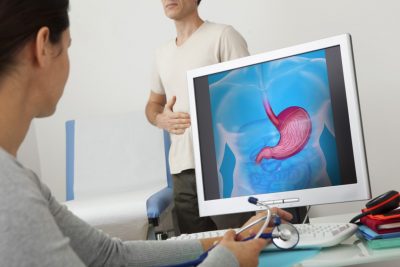
People who often suffer from heartburn carefully search for an affordable and at the same time fast-acting remedy that can relieve unpleasant symptoms. Broad-spectrum tablets "Ranitidine" for heartburn can be classified as such a remedy. They are intended for the treatment of diseases of the gastrointestinal tract such as ulcers, gastritis and others. Ranitidine is a medicine in tablet form that is available in pharmacies without a prescription. However, it is worth considering the fact that an independent decision to regularly take this drug may be erroneous and lead to negative results. Therefore, before treatment, you should definitely consult your doctor.
How to take Ranitidine for gastritis?
3 November 2020, 13:23 0 5,880
If correction of the amount of hydrochloric acid in the gastrointestinal tract is necessary when it increases significantly, Ranitidine is prescribed for gastritis. The active formula of the drug allows it to be used for the treatment and prevention of diseases with a highly acidic pH.
Tablets are prescribed by a doctor only according to indications in the form of a systematic course. The benefit of this histamine blocker is not only to reduce acid synthesis, but also to provide an anti-ulcer effect by increasing the concentration of protective mucus.
"Ranitidine" is especially effective for hypoacid type of inflammation of the mucous membrane with a lack of digestive enzymes.
About the drug
This medicine is prescribed for various diseases of the stomach, including helping as a remedy for heartburn. The drug belongs to the second generation H2-gestamine receptor blockers. Ranitidine affects digestive enzymes, including the secretory function of the stomach, reducing it, thereby regulating excessive levels of hydrochloric acid. The production of specific proteins, pepsins, is also reduced, the excess amount of which negatively affects the functioning of the entire gastrointestinal tract.
Initially, the drug was produced for the purpose of treating peptic ulcers, but over time, doctors began to use it as a drug for heartburn and to eliminate inflammatory processes in the organs of the digestive system.
Contraindications
Contraindications for use are:
- individual intolerance. If signs of an allergy appear, you should consult a doctor to select a safe analogue;

- age under 14 years;
- pregnancy;
- lactation.
The drug is prescribed with great caution if the patient has impaired functioning of the urinary system. Before starting treatment, you should make sure that there are no malignant neoplasms in the upper gastrointestinal tract.
So, Ranitidine is prescribed for diseases caused by increased secretory function of the stomach. This remedy should not be used for self-medication, since the dosage and duration of the course of administration are determined individually. The drug can be used as part of complex therapy, but it is recommended to take it 1-2 hours before taking another pharmacological agent.
Indications for use
Although the medicine is available over the counter without a prescription, it is safer to take it as directed or approved by a doctor. Ranitidine has many indications for use, in addition to eliminating the burning sensation behind the sternum during heartburn. As a rule, this medicine is prescribed by a doctor in the following cases and diseases:
- disturbances in the functioning of the stomach and painful symptoms after eating food;
- peptic ulcer of the digestive organs;
- esophagitis;
- gastritis;
- duodenitis;
- Zollinger-Ellison syndrome;
- reflux esophagitis;
- erosions and bleeding in the gastrointestinal tract;
- rehabilitation period after chemotherapy;
- exacerbation of various diseases of the pancreas.
In addition to these indications and heartburn, Ranitidine can be prescribed for use as a preventive measure for various diseases of the digestive system, including infectious ones. It is also prescribed for the prevention of stress ulcers.
For what gastrointestinal diseases is the drug effective?
Ranitidine is used primarily as an antiulcer agent.
It helps with the following gastrointestinal pathologies:
- exacerbation of gastric ulcer (GUP) and duodenal ulcer (DU);
- bleeding in the upper gastrointestinal tract and its prevention;
- gastroesophageal reflux (reflux of stomach contents into the esophagus);
- negative consequences for the gastric mucosa caused by taking drugs from the NSAID group, as well as prevention of their occurrence;
- acute inflammation of the pancreas;
- increased acidity;
- hyperacid gastritis;
- erosive esophagitis (inflammation of the esophagus, accompanied by a violation of the integrity of the mucous membrane);
- benign tumor of the pancreas against the background of peptic ulcer;
- chronic digestive disorders, accompanied by a feeling of nausea, stomach pain after eating.
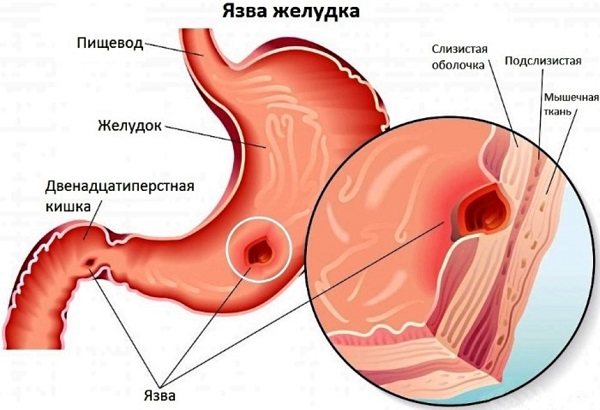
Considering that some of the listed diseases are often accompanied by heartburn and an unpleasant burning sensation in the chest, the drug is effective in eliminating these symptoms, as it acts directly on their cause. For example, ranitidine for gastritis with high acidity increases the pH of gastric contents, which reduces its aggressive effect on the esophageal mucosa in case of reflux. Sometimes it is used as part of complex therapy for gastroduodenitis, in which there is increased secretory function of the stomach with an increase in the volume of gastric juice and the concentration of hydrochloric acid in it.
Important: Ranitidine often becomes the drug of choice for patients in whom proton pump inhibitors that reduce the secretion of hydrochloric acid cannot be used to treat peptic ulcers.
Side effects and contraindications
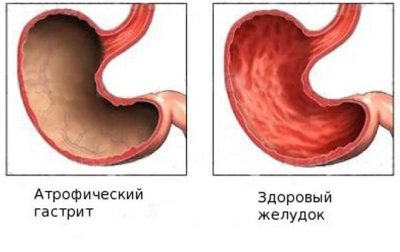
Like all medicines, Ranitidine has contraindications for use. It is strictly forbidden to use the product in the following cases:
- pregnancy;
- lactation;
- children under 12 years of age;
- hypersensitivity to the components of the drug;
- atrophic gastritis;
- low acidity in the stomach.
Like all drugs belonging to the same group as Ranitidine, it tends to provoke the development of side effects with long-term use, for example:
- skin rashes;
- decreased platelet levels in the blood;
- increased prolactin levels;
- increased fatigue;
- loss of coordination;
- general weakness;
- bad feeling;
- hair loss.
As a rule, stopping taking it stops the body’s negative reaction, but in especially severe cases, serious deviations can develop, and if a person suffers from some chronic diseases, then death. It is imperative to notify your doctor if you experience tinnitus, depression, or nervous irritation. Also dangerous are negative reactions from the digestive system:
- vomit;
- constipation;
- diarrhea;
- nausea;
- poor appetite;
- abdominal pain;
- discomfort in the oral cavity.

The functioning of the cardiovascular system may be disrupted, which is characterized by symptoms such as rapid heart rate, discomfort in the heart area, arrhythmia, and others.
The duration of treatment and dosage of Ranitidine depends on the patient’s diagnosis and, as a rule, is determined by the doctor. Before taking, be sure to read the instructions for use. In case of exacerbation of peptic ulcer in the gastrointestinal tract, accompanied by heartburn, oral administration of Ranitidine is prescribed, 1 tablet (150 mg) twice a day - morning and evening, or 300 mg once before bedtime. In some cases, the doctor may briefly increase the dosage to 450 mg per day.
For the prevention of diseases of the gastrointestinal tract, to prevent the development of ulcers, 1 dose of 150 mg per day is prescribed. As a rule, the medication is taken before bedtime.
To eliminate the negative symptoms of pancreatic adenoma (the disease is also called Zollinger-Ellison syndrome), Ranitidine is prescribed, 2 tablets (300 mg) 3 times a day. In especially severe cases, the dosage is increased as prescribed by the doctor.
If complications arise after surgery in the form of ulcerations of the mucous membrane of the gastrointestinal tract, 150 mg of the drug is prescribed twice a day. The course of treatment lasts approximately 30 days.
To prevent exacerbation of the ulcer and to prevent bleeding, intramuscular or intravenous infusion of 50-100 mg of the drug is prescribed every 8 hours.
To get rid of severe attacks of heartburn, drink 1 tablet (150 mg) of Ranitidine in the morning and evening.
Overdose
If you take Ranitidine for a long period or if the recommended dose is exceeded, the patient may develop an acute negative reaction of the body to the effects of the drug. The main symptoms of an adverse reaction and overdose include the following:
- headache;
- dizziness;
- decrease in heart rate to 40 beats/min (bradycardia);
- heart rhythm disturbance;
- confusion;
- hallucinations.
If such negative symptoms occur while taking this drug, you should immediately stop taking the drug and consult a doctor for help. If you need to provide first aid in emergency cases, it is recommended to drink about a liter of warm boiled water, to which you need to add a few teaspoons of soda and a couple of potassium permanganate crystals. Then you need to take a drug that has adsorbing properties, for example, activated carbon.
Analogs of "Ranitidine" are such drugs as:
Ranitidine is not used very often for heartburn. This drug is prescribed for stomach ulcers, so you should not take it yourself to avoid negative consequences.
However, sometimes it is recommended to use it for symptoms of heartburn. What happens as a result of this therapy?
Does ranitidine help with heartburn?
What happened to the drug, is it prescribed today? Is it worth starting treatment for them and what is the best approach to such therapy?
- First of all, it reduces the production of gastric juice.
- Reduces the amount of hydrochloric acid produced.
- Its action is also aimed at limiting the activity of pepsin (a protein enzyme produced by the gastric mucosa), which in excess can lead to disruption of the gastrointestinal tract.
For therapeutic purposes, the drug is prescribed in a dose of 300 mg 2 times a day in the morning and evening, the course duration is 4-6 weeks. To prevent exacerbations, a dose of 150 mg is used in the autumn and spring periods.
The following indications for its use are distinguished.
Contraindications are practically no different from those when using other substances used for heartburn.
- The drug is not prescribed to pregnant and breastfeeding women.
- It should be used with caution in case of hypersensitivity to the entire group of blockers.
- Children under 12 years of age are prohibited from using.
- The substance is prescribed only under the supervision of doctors and with great caution in the presence of kidney and liver damage.
Ranitidine will help quickly relieve unpleasant symptoms. Ranitidine for heartburn and stomach pain. Budget-friendly and effective product
I’ll tell you about a budget drug that can quickly relieve unpleasant symptoms associated with stomach pain, and also cope with heartburn. This is a Russian-made drug, at a ridiculous cost of only 25 rubles for a package of 20 tablets.
There are more expensive analogues on the market from other manufacturers, but this is the case when you don’t have to overpay for the brand, since this drug also has good effectiveness.
Now I’ll tell you about my experience of taking Ranitidine, and the cases in which it showed good effectiveness.
- General information about the drug
Manufacturer: Ozone LLC, Russia
Quantity: 20 pieces
Active ingredient: ranitidine (in the form of hydrochloride) 150 mg;
Excipients: microcrystalline cellulose, corn starch, collidon VA-64, colloidal silicon dioxide, magnesium stearate, hypromellose, ethylcellulose, polyethylene glycol 6000, propylene glycol, sodium lauryl sulfate, titanium dioxide, sunset yellow dye.
The drug is available in a dosage of 150 mg of active substance. There are packages of 20 pieces and 60 pieces.
I have a package with 20 Ranitidine tablets, they are located on plastic blisters of 10 pieces each.
The tablet is white, small in size, and there will be no problems swallowing it.
In the cardboard box, in addition to two blisters with tablets, there are instructions for the drug, which you should read before using it, since it also has contraindications:
- pregnancy;
- lactation;
- children under 12 years of age;
- hypersensitivity to ranitidine or other components of the drug.
With caution: renal and/or liver failure, liver cirrhosis with a history of portosystemic encephalopathy, acute porphyria (including a history).
And an impressive list of possible side effects. At the end of the review, I will add instructions for the drug.
- Use of Ranitidine for stomach pain and heartburn
Due to gastritis, I periodically experience pain in my stomach. Most often, this is due to the fact that I eat some kind of heavy food, and my stomach doesn’t like it.
In such cases, to relieve discomfort, I take 1 ranitidine tablet 2 times a day. Taking this drug is not associated with food intake, it is convenient, you can drink it at any time as desired and necessary.
The pain in the stomach goes away quickly, and 2-3 days of taking the drug are enough for my stomach function to normalize and nothing bothers me. When Ranitidine is discontinued, the pain does not return.
I also use Ranitidine for heartburn, as soon as I feel the first symptoms of its appearance, I immediately take a ranitidine tablet, then after 3-4 hours another one. This is enough for heartburn to completely disappear.
I like that this inexpensive drug quickly relieves pain and can eliminate heartburn. But still, you shouldn’t get carried away with it and self-medicate. If there are serious problems, then you should definitely go to the doctor.
Since ranitidine and similar drugs remove symptoms and are able to mask really serious stomach diseases that require completely different treatment.
- budget cost
- quick effect
- eliminates stomach pain
- eliminates heartburn
During the use of the drug, I did not experience any negative reactions or side effects.
Thank you for your attention.
Instructions for the drug Ranitidine:
The affordable anti-ulcer drug Ranitidine for heartburn is prescribed to patients by many gastroenterologists. Its high effectiveness is due to a decrease in the secretion of gastric juice, because it is the increased acidity of the stomach that is the most common cause of heartburn.
Features of the action
Ranitidine is available in the form of tablets with a dosage of the active substance of 150 or 300 mg and solutions for injection. The drug is dispensed from pharmacies with a doctor's prescription.
According to the mechanism of action, it belongs to histamine receptor blockers:
- reduces the volume of gastric juice when its production is increased due to high food load or pathological processes;
- enhances protective properties, helps regenerate the mucous membranes of the upper gastrointestinal tract when they are damaged;
- normalizes the content of hydrochloric acid in the digestive juice, inhibiting its secretion;
- increases the secretion by stomach cells of substances that protect the mucous membrane;
- improves microcirculation processes;
- reduces the degree of conversion of inactive pepsinogen into the protein-digesting enzyme pepsin, the excess of which negatively affects the functioning of the gastrointestinal tract.
Source: https://moy-zheludok.ru/zabolevaniya/ranitidin-pomogaet-li-ot-izzhogi
About the drug
Ranitidine is an antiulcer drug. Initially it was used only for these purposes, but gradually the drug began to be used to treat heartburn and other inflammations in the stomach.
The main active ingredient is ranitidine hydrochloride. Additionally contains titanium dioxide, magnesium stearate, corn starch, magnesium lauryl sulfate.
The medicine is available in the form of tablets and injections. Tablets are round in shape, with convex surfaces. Contains 150 and 300 mg of active ingredient. There are usually twenty pieces in a pack.
The injection solution can be found on sale in ampoules of 2 ml; in medical settings, a dosage of one ml is more often used.
Ranitidine is commercially available and can be purchased at almost any pharmacy.
Indications and use of the drug
Most often, the medicine is prescribed by a specialist. In addition to heartburn, there are certain indications for the use of this medication.
When prescribed:
- Disorders of the stomach, in which pain occurs after eating,
- Ulcerative diseases of the gastrointestinal tract,
- Bleeding in the gastric tract,
- The period after chemotherapy
- Acute pancreatic diseases.
In addition, the drug is often prescribed to prevent the occurrence of various diseases of the digestive system, including infectious ones.
Effects of ranitidine on heartburn
What happens when you take ranitidine? Does this medication help with heartburn? Once in the stomach, the drug begins to act quite quickly. There is a decrease in the production of gastric juice and a decrease in acidity.
In this case, the medicine has a restorative and healing effect on the gastric mucosa. Heartburn gradually goes away. The maximum concentration of ranitidine is achieved a couple of hours after administration. The effect of the drug lasts up to twelve hours.
How to take ranitidine should be prescribed by a medical professional, based on the patient’s condition and diagnosis. For each diagnosis, the dosage varies.
Ranitidine for heartburn - how to use:
- If heartburn occurs as a result of exacerbation of peptic ulcers, take the medication one 150 mg tablet in the morning and before bed, or a 300 mg capsule just before bed.
- For prevention, take 150 mg of the substance before bedtime once every 24 hours.
- For diseases of the pancreas, the dosage can reach up to 300 mg three times a day.
- If heartburn occurs for physiological reasons, the patient is advised to take one 150 mg tablet twice a day.
- In the postoperative period and after the use of various treatment methods, ranitidine is prescribed one hundred and fifty mg twice a day for a month.
Ranitidine for heartburn is a fairly serious medicine, so it should be taken with caution.
Treatment of gastritis with Ranitidine
If correction of the amount of hydrochloric acid in the gastrointestinal tract is necessary when it increases significantly, Ranitidine is prescribed for gastritis.
The active formula of the drug allows it to be used for the treatment and prevention of diseases with a highly acidic pH. Tablets are prescribed by a doctor only according to indications in the form of a systematic course. The benefit of this histamine blocker is not only to reduce acid synthesis, but also to provide an anti-ulcer effect by increasing the concentration of protective mucus.
"Ranitidine" is especially effective for hypoacid type of inflammation of the mucous membrane with a lack of digestive enzymes.
Description of the drug
Ranitidine is a histamine blocker that corrects the level of acid in the stomach when it exceeds the norm. Available in orange tablets. Injection form available. An alternative is water-soluble, effervescent tablets. All of the listed forms of the drug are united by common effects on the gastrointestinal tract:
- inhibition of digestive acid secretion;
- decrease in the amount of gastric juice;
- relieving irritation from inflamed walls;
- relief of heartburn, reduction of belching force;
- activation of local immunity;
- launching regeneration processes.
The drug is excreted naturally in the urine after 24 hours.
Ranitidine belongs to a new generation of medications with a wide spectrum of action.
In addition to creating favorable conditions in the gastrointestinal tract for tightening erosions, ulcers, and instantly relieving the symptoms of gastritis, the medicine has an immunomodulatory effect, treats rheumatoid arthritis, aspiration pneumonia, and is used as a prophylactic agent in the postoperative period on the gastrointestinal tract. At the same time, it has been proven that there is no negative effect on the thyroid gland and genitourinary system. After 24 hours, the drug is excreted naturally in the urine.
"Ranitidine" is indicated for use for gastritis and ulcers of the stomach, duodenum, if the following symptoms are present:
- heartburn with belching;
- inflammation of the esophagus due to the backflow of acidic gastric contents;
- stomach and intestinal disorders.
Composition of the medicine
The active formula contains ranitidine hypochloride in the form of white powdery granules with a pungent odor and a bitter aftertaste.
Auxiliary compounds are sodium lauryl sulfate, cellulose microcrystals, colloidal silicon dioxide, magnesium stearate.
In smaller quantities, the composition included titanium dioxide, hypromellose, ethylcellulose, polyethylene glycol, corn thickener (starch), and dye.
Effect of the drug
The drug reduces stomach acidity.
Since Ranitidine is a histamine blocker of receptors secreted by the gastrointestinal mucosa, the medicine performs the following functions:
- for a long time reduces the secretion of digestive juice and acid concentration;
- slows down the action of microsomal enzymes;
- creates protection for the cellular layer of the mucosa;
- relieves the severity of a painful attack.
The peculiarity of the drug's action for gastritis is its selectivity regarding the glands that secrete acid.
This means that Ranitidine inhibits the activity of only secretors that produce hydrogen chloride through gastrin and histamine, which are also waste products of Helicobacter.
By the way, it is these pathogens that cause hyperacid gastritis, gastropathy and gastric and duodenal ulcers. By reducing acidity while taking Ranitidine, the bacterial form dies without the influence of antibiotics.
How to take Ranitidine when treating gastritis?
Doctors recommend taking Ranitidine for chronic gastritis with high acidity. The medicinal formula is dosed strictly individually. But the instructions spell out the general rules of admission.
Adults are prescribed 150 mg twice every 24 hours (morning and evening), but it is possible to take 300 mg once before bedtime. The effect lasts for 10-12 hours. Treatment does not depend on food intake. It is recommended not to chew the pills, but to drink plenty of water.
The duration of the course varies between 1-2 months. Injections are prescribed to prevent bleeding. Simultaneous intake of alcohol and antacids is unacceptable.
Contraindications and overdose
Ranitidine accelerates metabolism, so the medicine is not recommended:
- pregnant and lactating women;
- children under 14 years of age;
- cores;
- patients with nervous system problems.
If the permissible dose (maximum) is exceeded, convulsions appear, heart rhythm is disturbed, hallucinations appear, and fainting is possible. This situation requires urgent medical intervention.
If an overdose occurs with tablets, the stomach must be rinsed before the ambulance arrives. If migraines, allergies, irritability and overexcitability occur, the patient should consult a doctor regarding the development of side effects for reassignment or correction of the treatment regimen.
Source: https://TvoyZheludok.ru/gastrit/tradlechenie/ranitidin-pri-gastrite.html
Contraindications and side effects
The medication has certain contraindications for use that you need to know.
- The heartburn remedy is prohibited for use during pregnancy and lactation,
- Age under 14 years old,
- Intolerance to any components of the product,
- Impaired liver and kidney function.
- Porphyria in acute form.
The drug can cause various side effects if taken incorrectly.
What could be:
- Decrease in pressure,
- Cardiac dysfunction
- Allergic reactions, up to Quincke's edema,
- Headaches
- Neuroses, irritability,
- Impotence and decreased libido,
- Constipation, lack of appetite,
- Severe fatigue, constant tiredness,
- Violation of hematopoietic processes, thrombosis.
These are just some of the side effects that may occur. Before using ranitidine for heartburn, you should carefully read the instructions.
Constantly exceeding the prescribed dosage or self-treatment with ranitidine can lead to an overdose. In this case, a person experiences severe pain in the head, impaired consciousness, disruptions in cardiac activity, and allergic manifestations on the skin. In this case, it is necessary to immediately rinse the victim’s stomach and call an ambulance.
It is worth noting that this medicine for heartburn is not a one-time use. To obtain the desired result, it must be used in courses, strictly adhering to the prescriptions of specialists.
What you need to know when using the drug
There are a number of specific guidelines that you need to know before starting ranitidine therapy.
- Before treatment, a stomach examination is required to exclude the presence of cancer.
- If therapy is abruptly interrupted, the production of gastric juice may increase.
- When taking the medication for a long time, inflammatory processes on the mucous membrane may develop.
- Allergy test results may be unreliable when treated with ranitidine.
- During the period of therapy, avoid food and drink that can irritate the mucous membranes of the digestive organs.
- The drug interacts with other medications, so you must inform your healthcare professional about their use.
- If it is necessary to determine the acidity in the stomach, then the study can be carried out only a day after the last dose of the medicine.
Ranitidine can be purchased at pharmacies without a prescription. Its cost varies within fifty rubles, so it is a completely affordable medicine for all segments of the population. Reviews about treatment with this drug are mostly positive. The result comes quite quickly if used correctly.
Ranitidine for heartburn is an effective and inexpensive medicine. It quickly helps get rid of negative feelings and restore the lining of the stomach. However, the use of such a drug must necessarily be accompanied by caution and attentiveness.
Video: heartburn medications
Ranitidine has been used for gastrointestinal diseases for quite a long time. This has its advantages - there is enough reliable research - and disadvantages, which include many side effects and the danger of overdose. The drug is available in pharmacies only with a doctor's prescription.
The product is produced by pharmaceutical companies in different countries: Switzerland, India, Ukraine, Macedonia, Serbia, Bulgaria, Russia. Release forms include tablets of 150 and 300 mg, ampoules of 2 ml. Blisters with medicine are packed in boxes along with instructions in the consumer’s language.
Features of the action
Ranitidine is available in the form of tablets with a dosage of the active substance of 150 or 300 mg and solutions for injection. The drug is dispensed from pharmacies with a doctor's prescription.
According to the mechanism of action, it belongs to histamine receptor blockers:
- reduces the volume of gastric juice when its production is increased due to high food load or pathological processes;
- enhances protective properties, helps regenerate the mucous membranes of the upper gastrointestinal tract when they are damaged;
- normalizes the content of hydrochloric acid in the digestive juice, inhibiting its secretion;
- increases the secretion by stomach cells of substances that protect the mucous membrane;
- improves microcirculation processes;
- reduces the degree of conversion of inactive pepsinogen into the protein-digesting enzyme pepsin, the excess of which negatively affects the functioning of the gastrointestinal tract.
Composition and beneficial properties of Ranitidine for gastrointestinal diseases
The drug is named after its active ingredient, ranitidine. There are 2 types of tablets that differ in dosage: 300 and 150 mg. The protective film consists of agents that disintegrate in the intestines. Among the additional chemical agents used: silicon dioxide colloid, microcrystalline cellulose powder, magnesium stearate, copovidone.
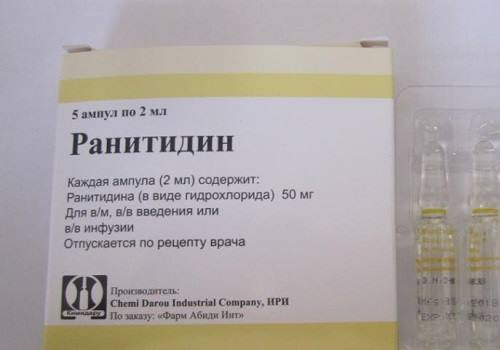
Ampoules contain 25 mg of active substance per 1 ml; accordingly, if a full 2 ml ampoule is used, the patient is given an injection of 50 mg.
Ranitidine was originally created as an antiulcer agent. The active component is a synthetic substance from the group of blockers of special receptors responsible for the release of histamine (H2). Their role is to have a complex effect on the secreting goblet cells of the stomach along with gastrin, caffeine, pentagastrin, pepsin, acetylcholine for the formation of gastric juice. Histamine acts like a hormone and stimulates the synthesis of hydrochloric acid. It is “recognized” only by H2 receptors.
Under normal conditions, the quantitative indicator of acidity depends on the food received. It supports the initial digestion process, affects the microflora, crushing and mixing of the bolus, and the speed of transportation to the duodenum. In patients with stomach pathology (gastritis, ulcers), the mechanism for regulating acid production is disrupted. Excess leads to erosion of the mucous membrane, the formation first of a focus of inflammation, then erosion and deep ulcers.
Due to the stagnation of the food bolus, the possibility of reverse (reflux) reflux of contents into the esophagus appears. The patient suffers from heartburn from the effects of acid on the mucous membrane of the lower part. Food is not digested properly, which leads to disruption of subsequent enzymatic processes in the gastrointestinal tract (GIT). In addition, increased acidity creates a convenient habitat for Helicobacter pylori infection, which is considered the main cause of peptic ulcer disease in 70% of patients. Ranitidine suppresses increased acid production, pepsin activity and stimulates the physiological defense of the stomach against internal acid aggression.
Important point! The effect of the drug is not accompanied by changes in liver function and a decrease in mucus secretion.
As a result of the use of the drug, conditions for scarring of the ulcer, activation of anti-inflammatory processes due to active microcirculation in the wall of the stomach and small intestine, and the supply of nutrients are improved. The symptoms of the disease gradually disappear.
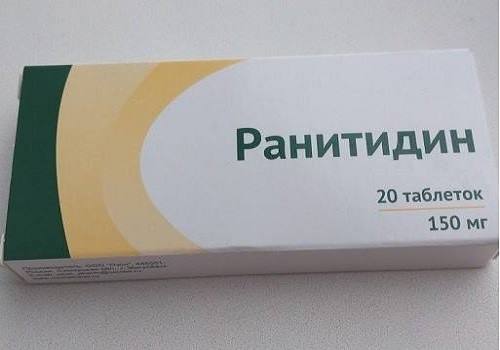
When taken as a tablet, the medicine is quickly absorbed in the intestine. The presence of food in the stomach does not affect the flow of the drug into the bloodstream. The maximum concentration is determined after 2-3 hours. Further metabolism of the substance depends on the condition of the liver cells. Complete conversion to oxide and desmethylranitidine occurs in 5-9 hours. Speed is individual. It is believed that the therapeutic dosage in the patient’s blood is maintained for 10-12 hours.
Excretion from the body is ensured mainly through urine; a small part of the substance is removed during defecation.
Important! Ranitidine is not blocked by the placental barrier of the fetus and is passed on to the baby through the breastfeeding mother's milk.
The properties of the drug determined its main indications:
- gastric or duodenal ulcer in the acute phase;
- the presence of signs of bleeding in the initial areas of the gastrointestinal tract, their prevention;
- gastroesophageal reflux disease;
- inflammation of the esophagus with cracks in the mucosa (erosive type of esophagitis);
- prevention of the formation of “stress” ulcers and seasonal exacerbations;
- pre-anesthesia preparation for the upcoming operation to prevent gastric juice from entering the respiratory tract;
- chronic hyperacid gastritis;
- consequences of long-term treatment with non-steroidal anti-inflammatory drugs;
- acute pancreatitis;
- digestive disorders with nausea and pain in the epigastric area after eating;
- consequences of infectious gastroenteritis;
- Zollinger-Ellison syndrome is a benign pancreatic tumor with increased production of gastrin, accompanied by a stomach ulcer.
It has been established that substances that block histamine H2 receptors suppress the negative effects of non-steroidal anti-inflammatory drugs and protect the stomach wall from ulceration. Therefore, the need for admission may arise in patients with systemic lesions of the joints and spine.
Ranitidine helps with heartburn
"Ranitidine" is a must-have medicine in the first aid kit for patients with gastritis, ulcers or other pathologies of the gastrointestinal tract. These tablets help with a wide range of digestive system problems, including heartburn.
Ranitidine is a universal medicine for many diseases of the digestive system.
General information
Ranitidine is a drug from the group of second-generation H2-gestamine receptor blockers. Ranitidine reduces the secretion of digestive juice and reduces the amount of hydrochloric acid. At the same time, the production of pepsin, a specific protein, the excess of which disrupts the functioning of the gastrointestinal tract, decreases. The medicine should be used for severe heartburn.
For medicinal purposes, the medicine is prescribed in a higher dosage (300 mg) twice a day for a long course (up to one and a half months).
For preventive purposes, the drug is prescribed in half the dose (150 mg) during seasonal exacerbations (autumn and spring).
For people who are in intensive care or for some reason cannot take pills, Ranitidine solution is offered.
Composition and its release form
The medicine is synthesized on the basis of ranitidine hydrochloride. The following types of Ranitidine are offered:
- The tablets are round, biconvex, coated with a light orange film. active ingredient is 300 or 150 mg. There is an over-the-counter release form with a concentration of the main component of 75 mg. Packaging is carried out in blasters of 10, 20, 100 pcs.
- Injection. The drug goes on sale in ampoules of 2 ml. But clinics more often use a solution in a dosage of 1 ml containing 25 and 50 mg of the active ingredient.
Prevention with Ranitidine
The drug prevents the occurrence of the following diseases and conditions:
- seasonal exacerbations of ulcers, erosive gastritis;
- consequences of infectious lesions of the upper gastrointestinal tract;
- reflux of gastric contents into the esophagus during operations under general anesthesia.
Operating principle
Ranitidine quickly normalizes the amount of digestive juice, inhibiting its excessive production. This condition is usually provoked by a high food load, for example, when overeating. Juice begins to be actively produced under the influence of hormones and biologically active substances, such as acetylcholine, histamine, gastrin, pentagastrin, caffeine.
The drug enhances the natural protective properties of the gastric mucosa, stabilizes the production of hydrochloric acid in the digestive juice. At the same time, the amount of mucus secretion does not change, and the processes of production of liver enzymes are not inhibited.
Ranitidine helps accelerate the healing and regeneration of damaged tissue of the gastric mucosa resulting from the aggressive effects of gastric acid.
According to the instructions, 150 mg of Ranitidine is enough to suppress the production of digestive juice for 8-13 hours. Coated tablets are quickly, but 50%, absorbed into the blood. The maximum content of the active substance is achieved after 2 hours.
How to use Ranitidine to treat heartburn?
The prescription of the course and dose of the drug depends on the diagnosis. For example:
Ranitidine therapy can also be used for preventive purposes.
- When relieving exacerbations of ulcers in the gastrointestinal tract, accompanied by heartburn, you need to take a tablet with a concentration of the active substance of 150 mg in the morning and evening, or 300 mg before bed. According to indications, it is possible to increase the daily dosage to 400-450 mg.
- For preventive purposes to prevent exacerbation of gastrointestinal ulcers, 150 mg of the drug is prescribed at night or once a day.
- To eliminate the symptoms of pancreatic adenoma (Zollinger-Ellison syndrome), caused by increased production of gastrin, 300 mg of Ranitidine is required three times a day. According to indications, it is possible to increase the daily dose to 700-900 mg.
- When postoperative ulceration of the mucous membrane appears, 150 mg 2 times a day is prescribed. course - up to 1 month.
- For preventive purposes, to prevent the development of stress ulcers and bleeding, intramuscular or intravenous infusion of 100 or 50 mg every 8 hours is recommended.
- To relieve physiological heartburn, you should drink 1 unit of Ranitidine 2 times a day.
Treatment regimens
Ranitidine can be treated in patients over 12 years of age. The drug is prohibited for the entire period of pregnancy and breastfeeding. The effect does not depend on food intake, so the tablets can be taken at any convenient time. They should not be chewed and should be washed down with plain water.
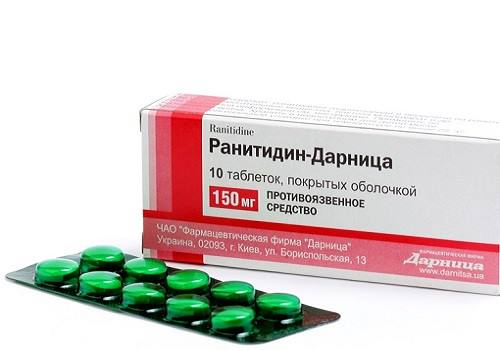
The treatment regimen is determined by the doctor for a specific case:
- Typically, a daily dose of 300-450 mg is sufficient. Rarely, an increase to the maximum (600-900 mg) is required.
- Two to three doses are recommended.
- In order to prevent digestive disorders, it is necessary to consume 150 mg before bedtime.
- Before surgery, use 150 mg in the evening and the same dose 2 hours before anesthesia.
Differences in dosage depend on the diagnosis:
- for reflux esophagitis, the drug is recommended up to 4 times a day, 150 mg, it is possible to take 300 mg once before bedtime;
- Zollinger-Ellison syndrome is relieved by using the drug three times a day, 150 mg.
The duration of treatment lasts on average 2-4 weeks.
When choosing a drug, doctors use the following rules:
- the patient should be preliminarily examined to exclude oncological damage to the digestive organs, since it is known that the effect of the drug is “masked” as a tumor;
- if there are changes in urine tests and doubts arise about kidney function, the dosage should be reduced by 2 times;
- it is necessary to discontinue the medicine gradually, by reducing the number of doses and doses; there is a risk of “rebound” syndrome (repeated exacerbation).
Treatment of heartburn
Ranitidine for heartburn is prescribed depending on the disease causing the symptoms.
For exacerbation of peptic ulcer with heartburn, 150 mg twice or 300 mg at night is recommended. If the effectiveness is insufficient, then the daily dose is increased to 450 mg.
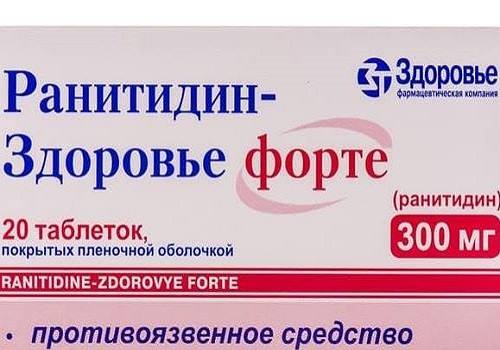
If heartburn occurs outside the period of exacerbation, patients should take 150 mg once a day.
When heartburn is caused by hypersecretion of gastrin in pancreatic adenoma, Ranitidine is prescribed in a higher dose: at least 300 mg three times a day.
In the postoperative period, heartburn is suppressed by taking the drug in a course of 1 tablet of 150 mg 2 times for four weeks.
If heartburn is caused by overeating or drinking alcohol, then it is enough to take 150 mg 2 times a day.
Impaired absorption of Ranitidine was detected during treatment with the simultaneous use of antacids. And preparations containing bismuth salts significantly accelerate the entry of the substance into the bloodstream. This must be taken into account in the combination of heartburn medications; an interval of 1-2 hours should be provided for use.
Gastroenterologists believe that in chronic gastritis, the phase of hypersecretion of gastric juice goes unnoticed, and the disease is more often detected when the activity of parietal cells is suppressed, atrophic processes on the mucosa, and thinning of the wall. At this stage, acidity is reduced, the action of Ranitidine not only does not help, but also worsens the situation.
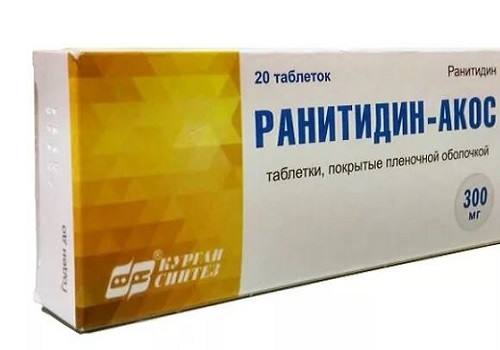
The state of increased acidity contributes to the transition of inflammation to the duodenum when gastroduodenitis is diagnosed. Pain from the epigastric region spreads across the upper abdomen to the back. Belching, heartburn, diarrhea, and bloating occur. Ranitidine for hyperacid gastritis supports the physiological protection of the gastrointestinal tract, promotes tissue regeneration, and relieves the irritating effect of excess hydrochloric acid.
Stomach ulcer
In the phase of exacerbation of the ulcer, simultaneously with sharp restrictions in the diet, Ranitidine is prescribed to protect changes on the inner surface of the stomach from the action of hydrochloric acid. The usual regimen is 150 mg in the morning and at night. Sometimes a single dose of 300 mg in the evening is recommended. A minimum course of therapy of 4-8 weeks is required.
“Stress” and postoperative ulcers are also treated for a long time by taking 150 mg tablets twice a day. If the patient's condition is accompanied by persistent vomiting and pain, the drug is prescribed parenterally (intravenously or intramuscularly) at 50 and 100 mg for adults, 15 mg for adolescents every 8 hours. A similar dosage helps prevent bleeding.
In antiulcer therapy, Ranitidine is often given the role of a substitute for more modern drugs from the group of proton pump inhibitors (Omeprazole, Omez). They also act by suppressing secretion. If the patient has contraindications, then consider using Ranitidine.
Ranitidine for stomach pain
The medicine does not have anesthetic properties. Reduction of pain is a secondary effect in response to healing of an ulcer or gastritis. You should not take pills for unclear reasons as an emergency aid.
The only indication is when the pain is accompanied by heartburn, and the patient is confident in his diagnosis. Taking into account the fact that a quick effect cannot be expected, it is better to have other drugs in your home medicine cabinet (for example, Almagel A, No-Shpu). The positive effect of Ranitidine should be judged taking into account the high risk of negative effects. After taking the pill, you should not drive or perform work that requires increased attention.
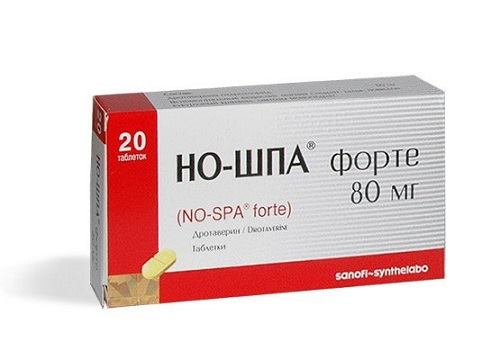
For poisoning, nausea and vomiting
Food poisoning is diagnosed by the symptoms of acute gastroenteritis: it begins with an attack of nausea, hypersalivation, repeated vomiting, then a feeling of heaviness in the stomach, diarrhea, and a rise in temperature. Increased weakness, dizziness, and headache indicate intoxication.
Ranitidine does not have an antiemetic effect. Cerucal and Motilium are used to relieve nausea and vomiting. The need for gastric lavage and the introduction of sorbents does not allow giving tablets orally, so only injectables are used.
The prescription of Ranitidine is justified in the treatment of gastroenteritis with increased acidity. Pathology can be caused by bacteria and viruses. After cessation of vomiting, to create a favorable regime for healing inflammation, 150 mg is prescribed twice a day.
Taking the drug Ranitidine for gastritis
A medication such as Ranitidine has a wide range of capabilities, in particular, its use allows you to normalize the amount of hydrochloric acid in the gastrointestinal tract. The drug reduces the level of elevated levels.
If a doctor prescribes Ranitidine for gastritis, most likely the patient suffers from an acidic pH, which manifests itself in a number of diseases. If the patient purchases tablets, they must be taken only strictly according to the instructions of the attending physician in systematic courses.
In fact, Ranitidine is a histamine blocker, its function is to reduce the volume of synthesized acid and exhibit an anti-ulcer effect, which is achieved due to an increase in the concentration of protective mucus.
The drug "Ranitidine" helps patients who have a hypoacid type of inflammation of the mucous membrane, and at the same time there is a lack of digestive enzymes.
Description of the drug
"Ranitidine" for gastritis, as has been said, helps normalize acid levels. In pharmacies, this medication can be purchased in orange tablets. If necessary, you can buy medicine that will be in the form of injections. Another good option is effervescent tablets that can dissolve in lukewarm water.
True, no matter what form Ranitidine is used, it will have the same effect on the patient’s body. First of all, the medication will reduce the production of gastric juice and help get rid of irritation on the walls of the stomach. At the same time, the drug will help relieve heartburn and activate local immunity.
Analysis of urine
Ranitidine should be excreted naturally through urine, one day after use. This drug is considered the latest generation drug, which has a lot of useful effects. Of course, the primary task of this medicine is to normalize the functioning of the gastrointestinal tract, to make the conditions in it so favorable that it will help erosions and ulcers heal.
The drug helps to instantly relieve the symptoms of gastritis, having an immunomodulatory effect on the body. In addition, regular use of the product as prescribed by your doctor will help cure rheumatoid arthritis and aspiration pneumonia.
Despite the effect, which is aimed primarily at the gastrointestinal tract, the drug has virtually no effect on the thyroid gland and genitourinary system.
Ranitidine is usually taken by people who have gastritis or stomach ulcers. The drug will be no less effective for heartburn, which provokes belching, for inflammation of the esophagus, which is caused by the return of acid, as well as for any stomach and intestinal disorders.
Composition of the drug
"Ranitidine" for gastritis helps to quickly get rid of the disease due to its composition, which contains ranitidine hypochloride. The powdered medicine has a pungent odor and bitter taste.
Due to the fact that the medicine is a histamine blocker, it helps to reduce the efficiency of receptors that appear in the gastrointestinal tract. Patients who take this drug note its ability to quickly relieve pain.
At the same time, the secretion of digestive juice decreases, the action of enzymes slows down, and a protective barrier is created for the cellular layer of the mucosa.
If the tablets prescribed by your doctor are taken according to indications, Ranitidine will help minimize the work of the secretors that produce hydrogen chloride.
They influence the development of Helicobacter bacteria in the body, being their main source of nutrition. The important fact is that pathogens help develop hyperacid gastritis and stomach ulcers.
With regular consumption of Ranitidine in the indicated doses, you can quickly normalize acidity, achieving the death of bacteria without an antibiotic.
Taking Ranitidine for the treatment of gastritis
As a rule, doctors prescribe Ranitidine in the presence of gastritis, which has become chronic and has high acidity. The use of the drug is regulated by the attending physician; the dosage and frequency are adjusted depending on the individual.
If we take the data from the instructions, adults should take 150 mg tablets 2 times. every day. Depending on the symptoms and picture of the disease, the medicine is sometimes taken only in the evening (once a day) in a double dose (300 mg each). As a rule, the achieved effect will last for at least 12 hours.
It is worth considering that the drug should be taken regardless of food intake. You should not chew the tablets; it will be better if the patient drinks a glass of water after swallowing them. You can take the medication for 2 months. Most often, the drug in the form of injections is prescribed to prevent bleeding. Of course, alcohol and antacids should not be taken at the same time as the medicine.
Conclusion
"Ranitidine" for gastritis helps to quickly and effectively relieve pain, improve the patient's condition, and normalize the functioning of the gastrointestinal tract. However, before using it, you must consult a doctor who can prescribe the correct treatment, determine the optimal dosage, and frequency of administration.
Source: https://PobediGastrit.ru/lekarstva/kak-prinimat-ranitidin-pri-gastrite.html
